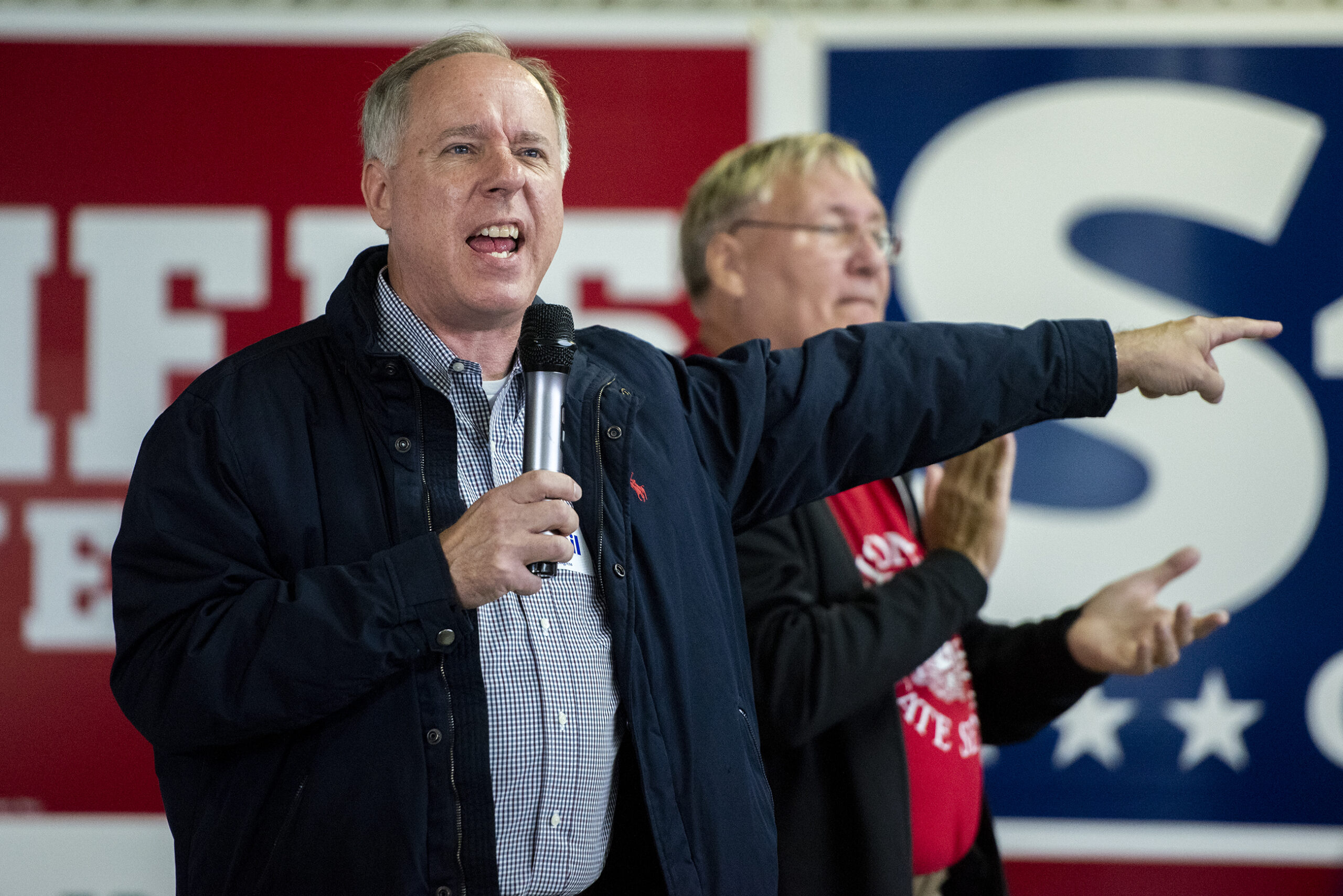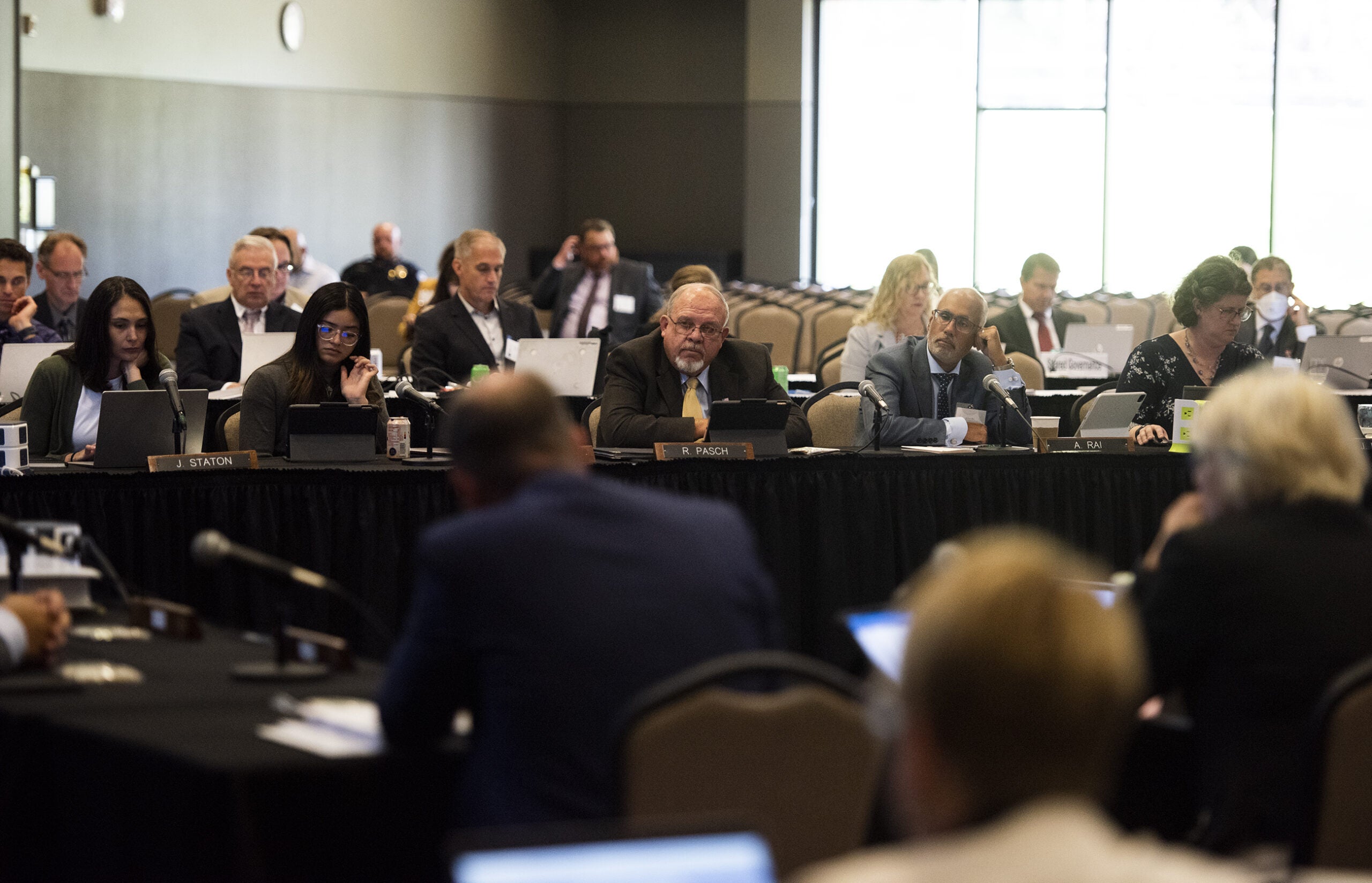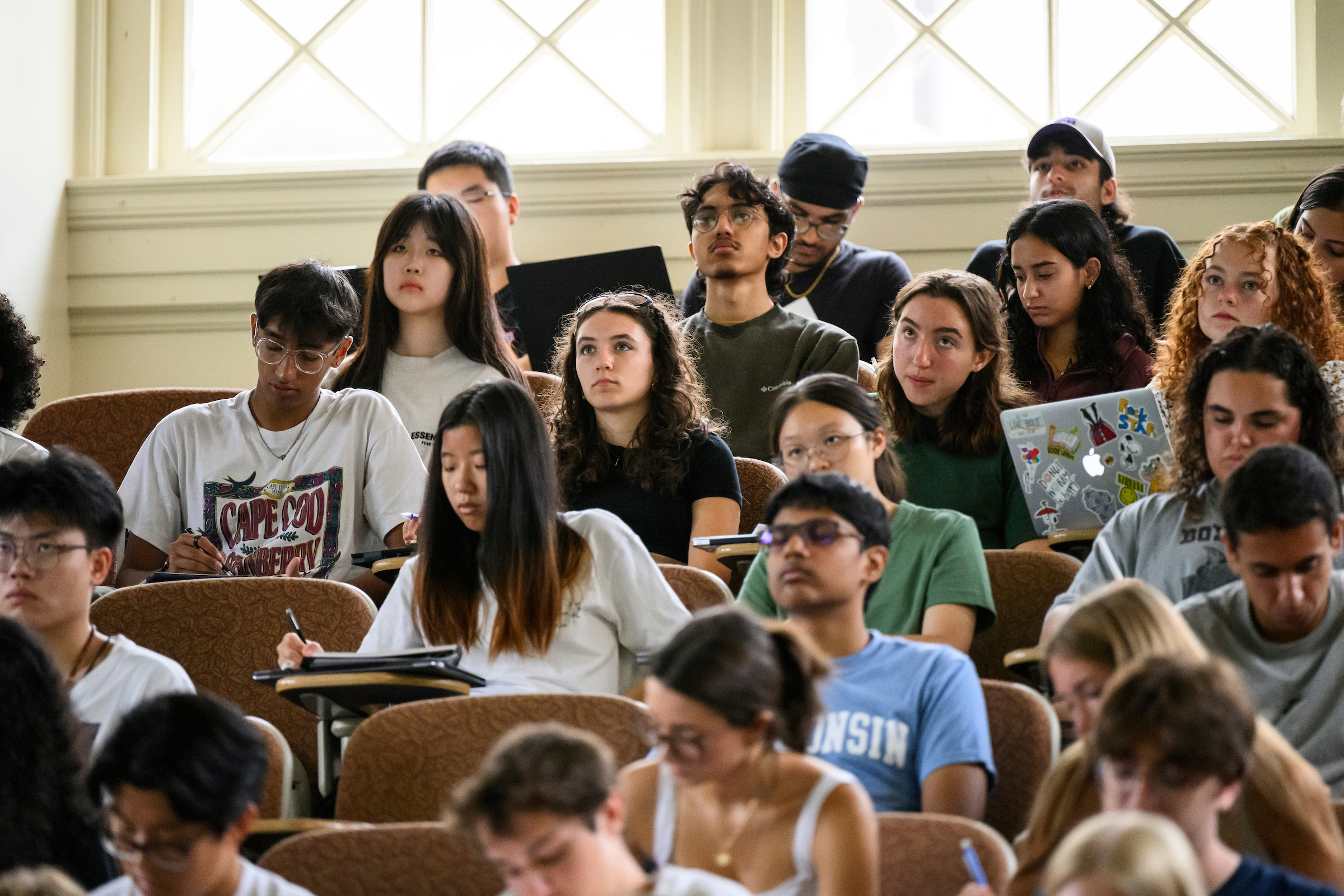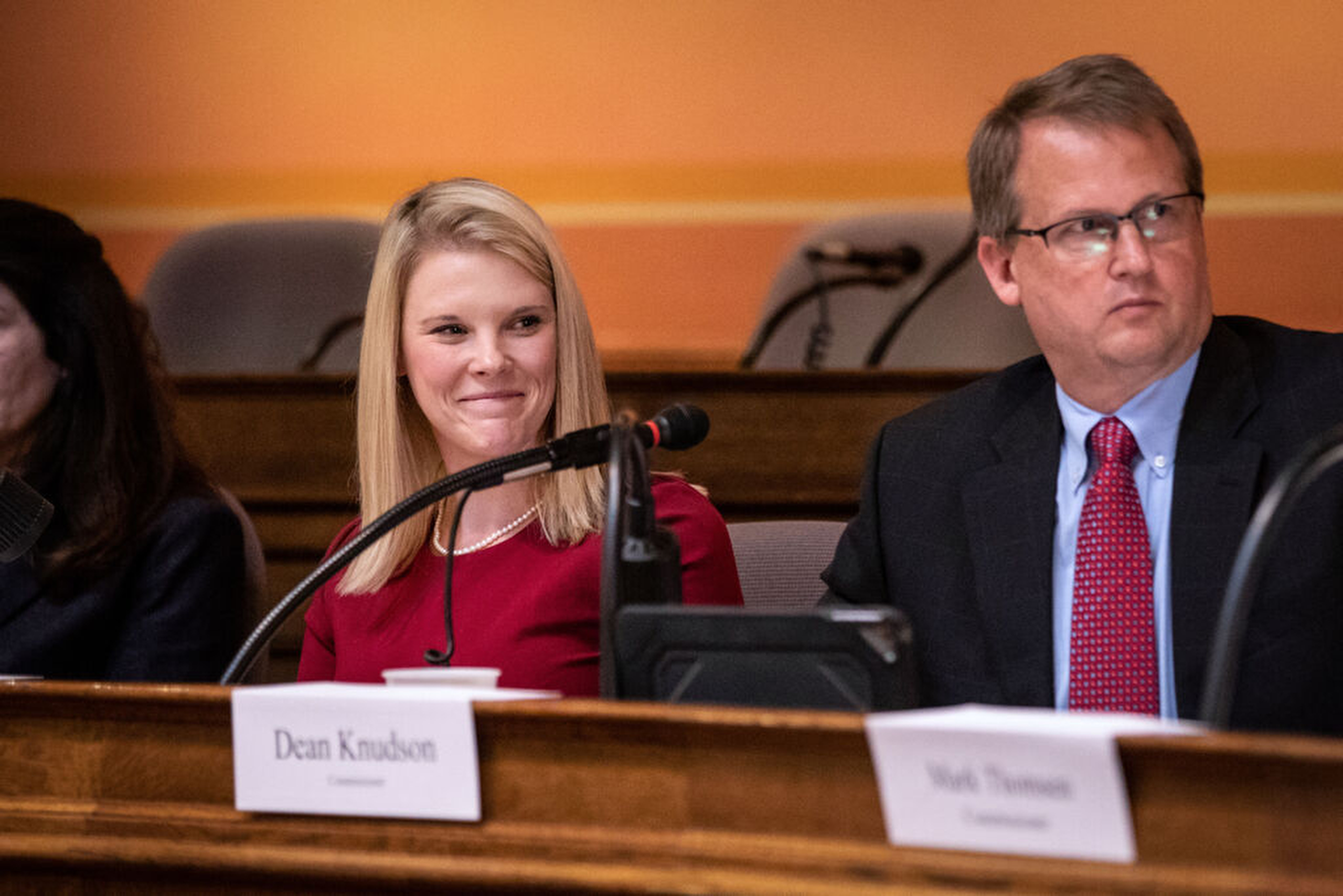Members of the Universities of Wisconsin Board of Regents will consult with attorneys Tuesday about a lawsuit challenging the power of the Legislature, a move that comes just days after the board rejected a deal with Assembly Speaker Robin Vos involving pay raises and limits on diversity, equity and inclusion initiatives.
The lawsuit in question, which was filed by Gov. Tony Evers, asks the Wisconsin Supreme Court to declare that the Legislature violated the Wisconsin Constitution’s separation of powers guarantee when a committee controlled by GOP lawmakers blocked pay raises for roughly 34,000 UW employees.
The pay raises have been blocked since October, when a committee co-chaired by Vos, a Republican from Rochester, declined to give final approval to UW raises but approved increases for other state workers.
Stay informed on the latest news
Sign up for WPR’s email newsletter.
Funding for all of the raises was included in the state budget, which passed with support from Republicans and Democrats at the end of June. In September, Vos announced he would block the UW portion until campuses eliminate DEI positions and programs, stating the UW doesn’t deserve any more state funding “until they accomplish the goal.”
Vos says rejected deal on raises, DEI, was final offer
On Friday, a compromise was announced between Vos, UW President Jay Rothman and UW-Madison Chancellor Jennifer Mnookin. Under terms of the deal, GOP lawmakers would release around $800 million for the raises and delayed building projects like a new engineering building for UW-Madison. In exchange, UW would freeze the number of DEI positions it hires through 2026 and realign some jobs currently focused on diversity. All told, it would have meant 43 fewer campus employees working on DEI.
In a surprise twist, members of the UW Board of Regents voted 9-8 to reject the Vos’ offer during a Saturday meeting. Members who voted against it gave impassioned speeches in favor of diversity programming and warned accepting the deal would lead to future concessions to Republican lawmakers.
After regents voted, Vos issued a statement blaming the board for denying employee raises and nearly $1 billion in investments for state universities, “all so they could continue their ideological campaign to force students to believe only one viewpoint is acceptable on campus.”

During an interview with WISN-AM Monday, Vos said he hopes regents “come to their senses” and reconsider the deal that “was negotiated in good faith.”
“I will do everything in my power to make sure that we either enforce this deal or we wait until the next budget to talk about it again,” Vos said. “We are not going to give the raises. We are not going to approve these new building programs. We are not going to approve the new money for the university unless they at least pass this deal.”
Senate Majority Leader Devin LeMahieu, R-Oostburg, issued a written statement Monday reiterating that the rejected deal was the Legislature’s “last and best offer.”
“The board of regents should reconsider their vote; stop prioritizing woke liberal ideology over student achievement, and make the right decision on behalf of the university system and the state,” LeMahieu said.
LeMahieu also said “without meaningful reform,” there will not be any more state investments going to state campuses.
Joe Heim, a retired professor of political science at the UW-La Crosse, told WPR the current situation between Vos and universities is unprecedented in multiple ways. Heim, who has studied the formation of the UW System in the 1970s, said he couldn’t recall lawmakers holding up pay raises for political reasons, which he calls “way over the line.” Heim also said he doesn’t recall regents voting down a resolution before the board.
“Normally, before you go into something like this, you count your votes,” Heim said. “I mean, it’s standard practice. You don’t put something on the floor unless you know you’re going to pass it.”
Heim said he suspects regents faced a lot of political pressure from Democrats, employees and students between Friday, when the deal was made public, and the Saturday vote that rejected the deal.
“And it’s very disappointing, frankly, and it reflects badly on almost everybody in the whole situation,” Heim said.
Could the Wisconsin Supreme Court step in?
Regents have scheduled a special board meeting Tuesday, in which they’ll talk with attorneys behind closed doors about the pending lawsuit filed against the Legislature by Evers.
The suit, which is before the Wisconsin Supreme Court and its new liberal majority, claims Republicans are “unconstitutionally and unlawfully obstructing basic government functions” by blocking the UW pay raises while seeking concessions on DEI.
Democratic Attorney General Josh Kaul, who filed the lawsuit on behalf of the governor, told WPR that if regents had accepted the Vos deal, he would have had to “slightly reframe how some of the issues have arisen.”
“But the core underlying issues remain the same, which is that there are these legislative committees that have been able to block executive branch action, and that’s just inconsistent with how we understand our system of government,” Kaul said.
Attorneys representing GOP lawmakers in the suit, like Vos and state Sen. Howard Marklein, R-Spring Green, argue Evers is asking the court to ignore precedent in order “to transform how our state government has worked for decades.”
A top Republican hinted regents’ actions could sink their confirmation votes
Republicans in the Wisconsin Senate have another political tool to exert pressure on state universities. Currently, four of Evers’ appointees to the Board of Regents have yet to be confirmed by the Senate’s GOP majority.
LeMahieu did not respond to a WPR question about whether the board’s rejection of Vos’ deal on Saturday may impact confirmation votes. LeMahieu had previously said he opposes Vos’ blockade of UW pay raises, but supports the goal of addressing diversity, equity and inclusion policies on college campuses.
In social media posts Monday, Senate President Chris Kapenga, R-Delafield, hinted Evers’ appointees could face headwinds with Republicans. He claimed DEI policies are “ineffective, divisive and bigoted” and promote “racism instead of equal access to affordable, quality education for Wisconsin residents.”
“It’s good to know before their upcoming Senate confirmation votes that several Regents chose their sacred ideology over getting our students ready for their careers,” Kapenga said.
Editor’s note: WPR staff are employees of UW-Madison.
This story has been updated to reflect that four nominees for the Board of Regents have yet to be confirmed by the state Senate.
Wisconsin Public Radio, © Copyright 2025, Board of Regents of the University of Wisconsin System and Wisconsin Educational Communications Board.





